by Joshua Cramer-Montes, MA-SID/MBA'16
In the weeks leading up to the United Nations Framework Convention on Climate Change 21st Conference of the Parties (COP21 for short) in Paris, tragedy struck. First was the downing of a passenger jetliner over the Sinai. Then came separate terrorist attacks in Beirut, Paris and Mali.
The Paris attacks in particular put the future of the entire COP21 event into question, but in the end it was decided that it would continue albeit with much tighter security. More than an act of defiance against terrorism, it was important to seek out signs of hope and restore our faith in humanity amidst the seemingly overwhelming darkness.
It was against this backdrop that COP21 convened 196 governments from around the world to negotiate a binding framework to reduce greenhouse gas emissions and limit global warming to less than two degrees Celsius. Not an easy task given many competing agendas and perspectives. U.S. President Barack Obama underscored its importance, saying, “We are the first generation to feel the impact of climate change and the last generation that can do something about it.”
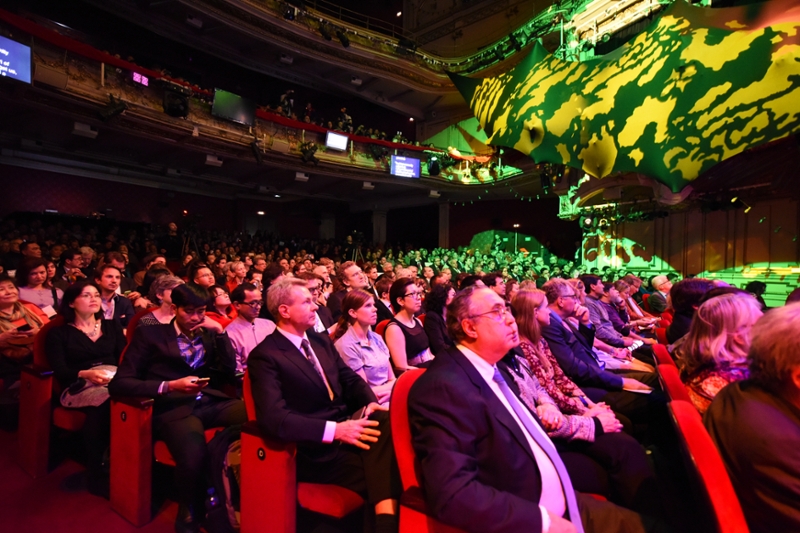
I was in Paris in my capacity as a communications and partnerships consultant for the United Nations Development Programme’s Equator Initiative. Specifically, I was part of the core team organizing the Equator Prize 2015, which honors the innovations and achievements of indigenous peoples and local communities to combat climate change.
Indigenous peoples and local communities are disproportionately impacted by climate change and are among the most vulnerable to its negative effects. They use and manage as much as 65 percent of the Earth’s land surface, but in many countries their rights and livelihoods are in jeopardy. For example, governments are handing over large swaths of forests to private sector interests and as we lose these forests, we lose their ability to take in greenhouse gases. In the process of cutting them down, we emit more. Forest survival doesn’t only impact indigenous peoples and local communities--it impacts us all.
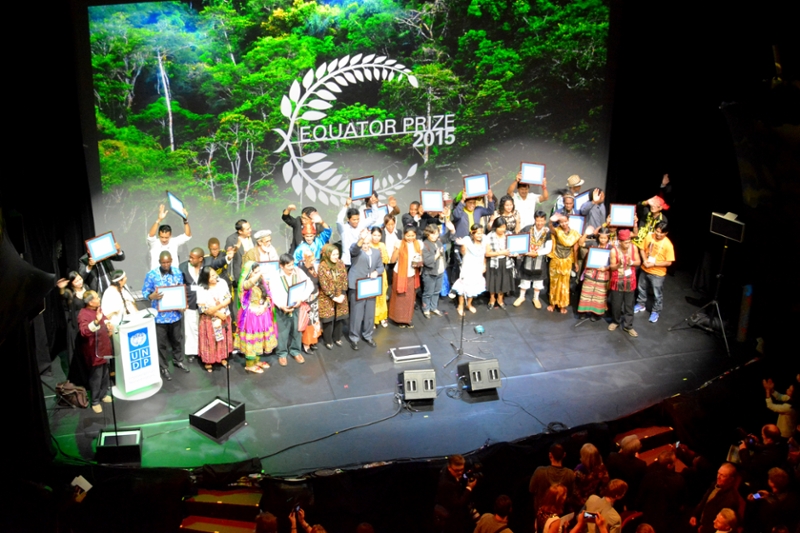
The Equator Prize gives winners international visibility of their fight to protect and secure their rights to lands, territories and natural resources, which helps them influence government leaders and policy makers back home. This year’s 21 winning initiatives came from 19 countries selected from a record-breaking 1,461 nominations.
Leading up to the event, I executed a communications strategy that included everything from media relations, marketing and social media to working with existing and prospective partners both within and outside the U.N. system.
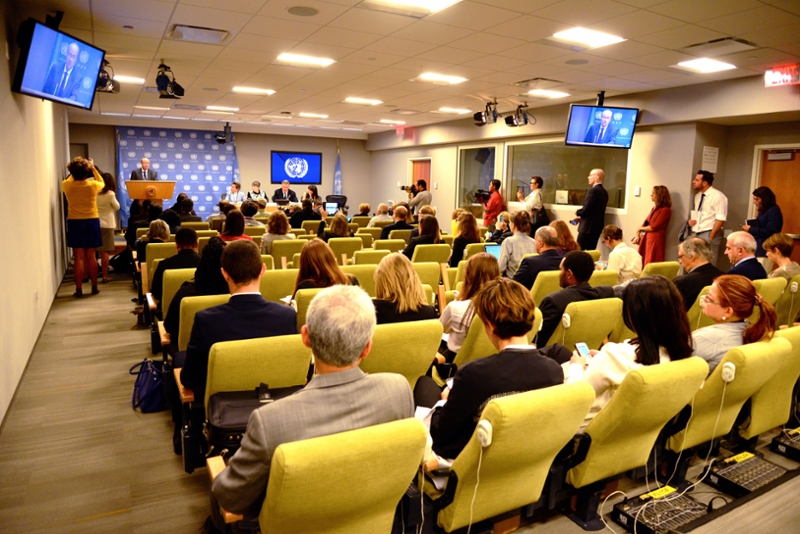
Upon arrival in Paris, my job entailed coordinating media interviews with Equator Prize winners and spending three days shadowing this year’s host, Alec Baldwin (who was as fantastic and gracious as you would expect). I briefed him for media interviews, made sure we were on time getting from one engagement to the next and kept crowds at bay in tight spaces.
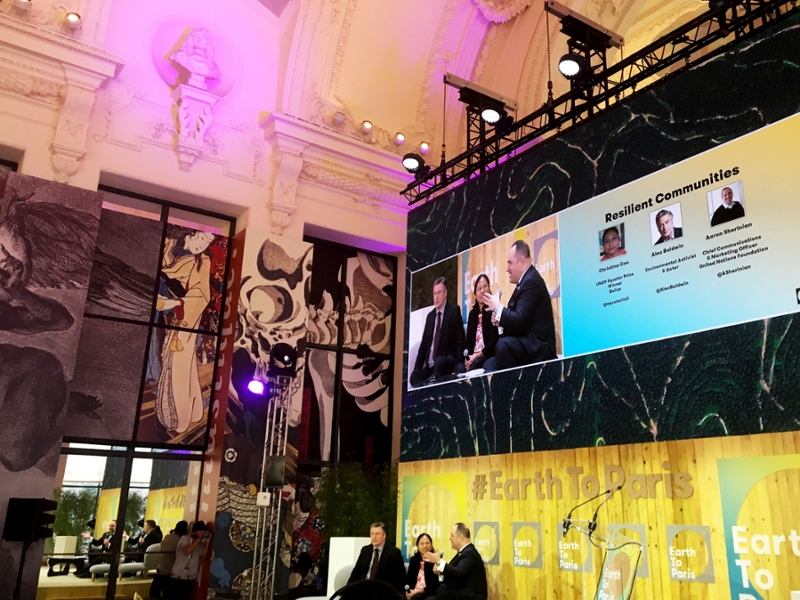
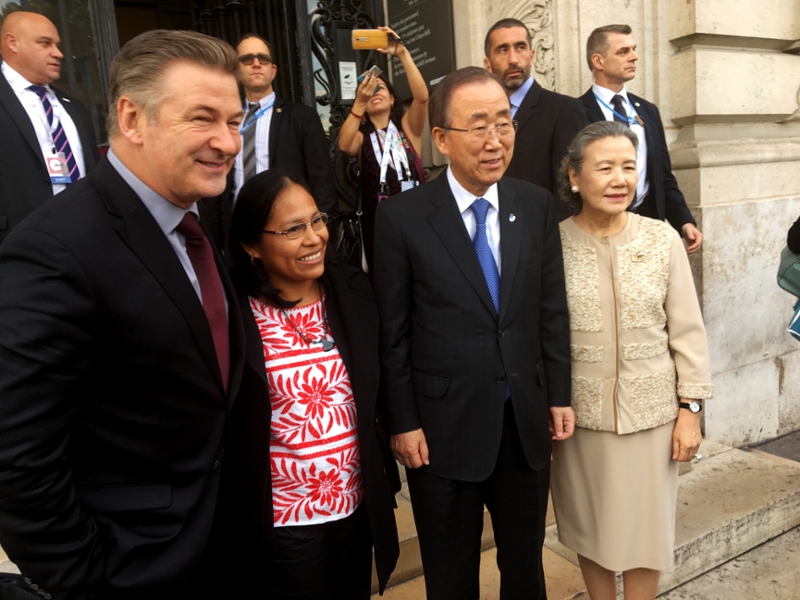
I don’t get star struck, but I did have a few surreal moments backstage watching Equator Prize winners mingling with presenters like Jane Goodall and former Norwegian Prime Minister Gro Harlem Brundtland (whose Brundtland Report on the environment and development codified the term “sustainable development” and is one of the first readings we read at the beginning of the SID program).
I came to Heller after five years working at an international NGO where I learned about international development mostly by doing. What I lacked, however, was the fundamental theory and a higher-level skill set to navigate what is often very hard, complex work. As I approach the mid-point of my time at Heller, here are some of the insights I’ve gained:
1. Don’t be afraid to ask why. “Keep calm and carry on” was part of a WWII-era British propaganda campaign. When pushing for social change, a new motto might be: “Don’t assume. Question everything.” Push for moving beyond the status quo. Challenge anyone who says “Well, that’s how we’ve always done it.”
2. The people we serve must always be at the center of everything we do. It can be easy to lose sight of the mission in the day-to-day work of carrying it out. But we must always remember why we are doing this work, and ethics and integrity must be its cornerstone. The day we lose sight of the people who are meant to benefit from our work or the day we fail to ask them what it is they want, is the day we need to reassess our work. Moreover, social justice is not just about other people and places—it’s about tackling inequality everywhere, including our own backyard.
3. As leaders, we must develop a diverse skill set. It’s not enough to have book smarts and passion for a cause. Good intentions coupled with a lack of emotional intelligence or the humility/knowledge of how to localize things for different contexts can cause more damage than good. Leadership and communications skills are also needed to navigate competing interests and perspectives, which can be one of the most challenging parts of working in the social sector. Heller has helped me strengthen these areas through courses like Planning and Implementation (from the Sustainable International Development program), Leadership and Organizational Behavior (from the MBA program) and Responsible Negotiation (from the Coexistence and Conflict program). These programs are complementary, not in competition—each can add valuable skills to a student’s quiver.
4. Engage and collaborate with people from all walks of life and across all sectors. This ties into number three above. It’s easy to preach to the choir. What’s more difficult is to lean into areas of discomfort or divergence and try to find common ground. That’s where true social change can happen. There is an African proverb that says, “If you want to go fast, go alone. If you want to go far, go together.” I think that says it all.
5. The Heller School is getting us ready for the future. As I watched the various speakers give their remarks to the 1,600 people in the audience, I also reflected on how our classmates will be the next Gro Brundtlands and Jane Goodalls of the world. It was inspiring to see other Heller classmates at COP21: Elise Willer (MA-SID/CO ’15) who was there as part of her practicum with the French RURENER network; Qiang Li (MA-SID ’16) who is currently doing his practicum with the Equator Initiative; and Shwetha Bhat (MA-SID ’16) who was there as part of her work with Climate KIC, Europe's largest public-private innovation partnership focused on climate innovation to mitigate and adapt to climate change.
In her remarks, Jane Goodall said, “I truly believe that we will only achieve our true human potential when head and heart work in harmony.” In light of the events leading up to COP21, the Paris agreement, while not perfect, is an important symbol of that potential. Here at home, I believe the education, compassion and experience we are learning at the Heller School for Social Policy and Management will bring us one step closer.
To watch a two-minute recap of the Equator Prize 2015 award ceremony, please click below.
